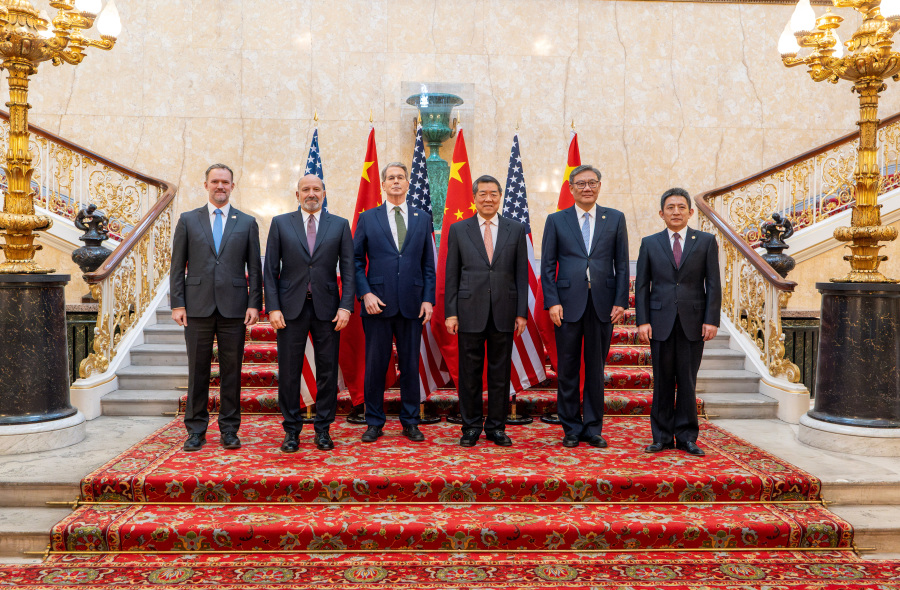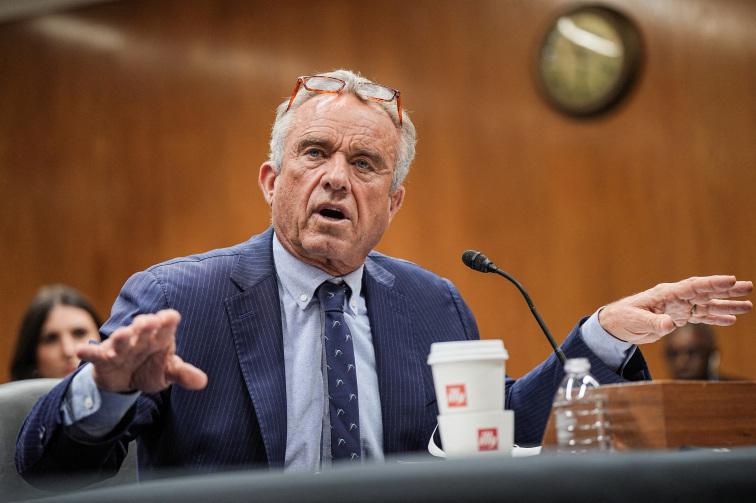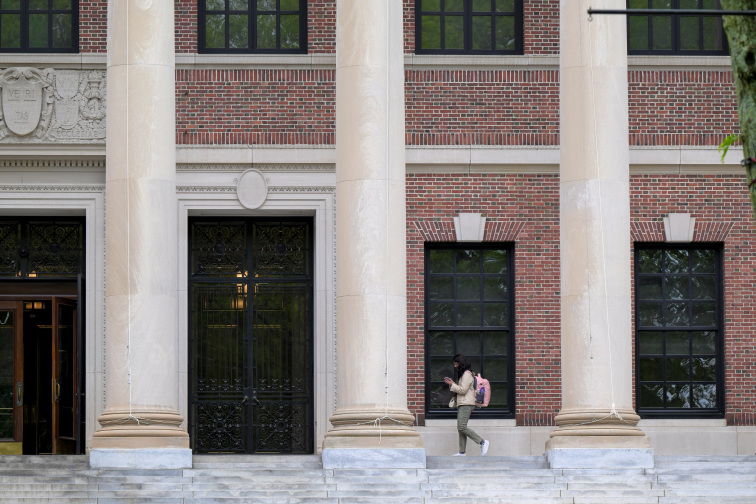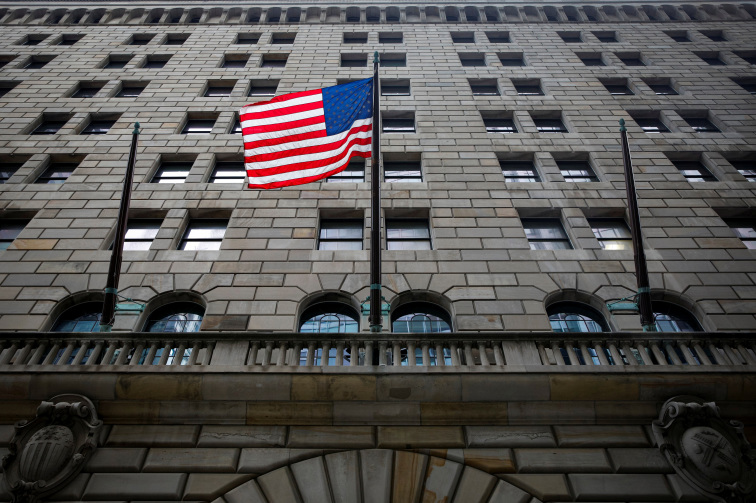LONDON (Reuters) -Top U.S. and Chinese officials will resume trade talks for a second day in London on Tuesday, hoping to secure a breakthrough over export controls for rare earths and other goods that have threatened a fresh rupture between the two superpowers.
Investors are hoping for an improvement in ties after the relief sparked by a preliminary deal agreed in Geneva last month gave way to fresh doubts after Washington accused Beijing of blocking exports that are critical to sectors including autos, aerospace, semiconductors and defence.
White House economic adviser Kevin Hassett said on Monday that the U.S. was likely to agree to lift export controls on some semiconductors in return for China speeding up the delivery of rare earths.
U.S. President Donald Trump said the talks were going well: "We're doing well with China. China's not easy."
Trump's often erratic policymaking on tariffs has roiled global markets, sparked congestion and confusion in major ports, and cost companies tens of billions of dollars in lost sales and higher costs.
The second round of U.S.-China talks, which followed a rare phone call between Trump and Chinese President Xi Jinping last week, comes at a crucial time for both economies.
Customs data published on Monday showed that China's exports to the U.S. plunged 34.5% in May, the sharpest drop since the outbreak of the COVID-19 pandemic.
While the impact on U.S. inflation and the jobs market has so far been muted, tariffs have hammered U.S. business and household confidence and the dollar remains under pressure.
DISCUSSING DISAGREEMENTS
The two sides, led at the talks by U.S. Treasury Secretary Scott Bessent, Commerce Secretary Howard Lutnick and U.S. Trade Representative Jamieson Greer, with the Chinese contingent helmed by Vice Premier He Lifeng, are meeting at the ornate Lancaster House in the British capital.
The talks ran for almost seven hours on Monday and are set to resume after 0900 GMT on Tuesday, with both sides expected to issue updates later in the day.
The inclusion of Lutnick, whose agency oversees export controls for the U.S., is one indication of how central rare earths have become. He did not attend the Geneva talks, when the countries struck a 90-day deal to roll back some of the triple-digit tariffs they had placed on each other.
China holds a near-monopoly on rare earth magnets, a crucial component in electric vehicle motors, and its decision in April to suspend exports of a wide range of critical minerals and magnets upended global supply chains and sparked alarm in boardrooms and factory floors around the world.
Kelly Ann Shaw, a former White House trade adviser during Trump's first term and now a trade partner at the Akin Gump law firm in Washington, said she expected China to reaffirm its commitment to lift retaliatory measures, including export restrictions, "plus some concessions on the U.S. side, with respect to export controls measures over the past week or two".
But Shaw said she expected the U.S. to only agree to lift some new export curbs, not longstanding ones such as for advanced artificial intelligence chips.
In May, the U.S. ordered a halt to shipments of semiconductor design software and chemicals and aviation equipment, revoking export licences that had been previously issued.
(Writing by Kate Holton; editing by David Evans)











News magazine bootstrap themes!
I like this themes, fast loading and look profesional
Thank you Carlos!
You're welcome!
Please support me with give positive rating!
Yes Sure!